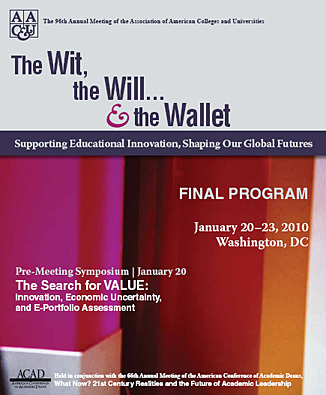From DSC:
I was reading the Daily Drucker today and I ran across an entry entitled, “The Educated Person” (p.43). Two quotes stood out at me on that page:
“The education person needs to bring knowledge to bear on the present, not to mention molding the future.”
“Postcapitalist society needs the educated person even more than any earlier society did, and access to the great heritage of the past will have to be an essential element. But liberal education must enable the person to understand reality and master it (emphasis DSC).”
From DSC:
This speaks to the need for liberal arts and other forms of education…but it also speaks to me of the need to balance the academic world with the world as it is. We must educate our students so that they can hit the ground running (as best as possible) upon graduation. To me, this means (at least in part) being able to understand and utilize various technologies to obtain and synthesize accurate, up-to-date information. Students need to be able to build their own learning ecosystems and keep them up and running…thriving…throughout their entire lives.









